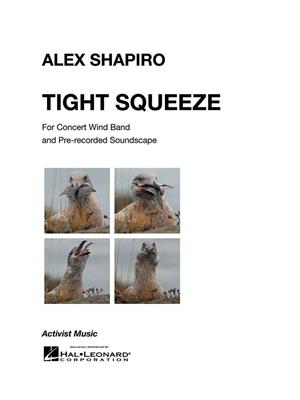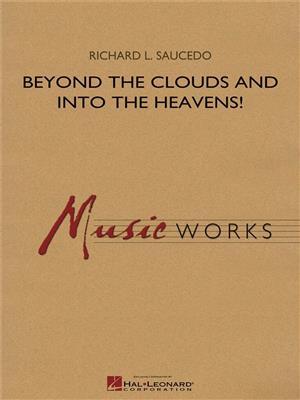Results
-
 £53.50
£53.50March to Concord - Rick Kirby
An important part of American history comes to life through March to Concord. The familiar patriotic anthem Chester is woven throughout the work coupled with an engaging original melody. Rick Kirby's dynamic setting is bothrhythmic and powerful, utilizing a range of variation techniques plus skillful handling of the percussion section. Dur: 3:15
Estimated dispatch 7-14 working days
-
 £53.50
£53.50The Irish Baker
Two fiddle traditions are combined in this lively setting for concert band. The American bluegrass favorite Angelina the Bakeris creatively combined with the style of a Celtic dance tune! After a flowing and lyric openingstatement, the drones and rhythms of an Irish jig take the band and the audience on an exuberant romp. Dur: 2:30
Estimated dispatch 7-14 working days
-
 £38.50
£38.50Jingle Ye Merry Gentlemen - James Curnow
Cleverly combining Jingle Bells with God Rest Ye Merry, Gentlemen, here is an entertaining arrangement for young players reminiscent of an old-fashioned sleigh ride. It's fun, it's jolly and it brings to life the Christmas season.
Estimated dispatch 7-14 working days
-
 £104.99
£104.99Oriental Postcards - Etienne Crausaz
Oriental Postcards is comprised of three variations on a theme with an Eastern character: in From Egypt, the theme is contrastingly first played in brass and then in woodwind, in From the Desert the drums play an important role.and in From the Orient Express the theme appears in a fun, light-hearted guise. This catchy composition was especially written for young musicians and is especially suitable for youth orchestras.
Estimated dispatch 7-14 working days
-
 £57.50
£57.50Propulsion - Robert Buckley
Propulsion is the action of driving or pushing forwards. It is the force that thrusts a rocket into space, that propels a runner across the finish line, and that fuels the momentum of a dolphin through the waves. With drivingpercussion, high-energy rhythms, dynamic melodies and an overall sense of excitement, Propulsion by Robert Buckley moves through different musical moods without ever losing its relentless pulse. A tour-de-force for all members ofthe band and an exhilarating concert opener! Dur: 3:00
Estimated dispatch 7-14 working days
-
 £76.99
£76.99Tight Squeeze - Alex Shapiro
From the acclaimed composer of Paper Cut, AlexShapiro, this unique, high-energy work could bedescribed by the following: imagine Arnold Schoenberg,Henry Mancini, and Charlie Parker walking into adance club in Havana, and staying for three minutes. Tight Squeeze ventures into new territory as it exploreschromaticism and syncopation against a prerecordedpercussion groove. The result is the repertoire's first electroacoustictwelve-tone techno Latin bebop band piece! Okay, maybe Schoenbergdid all that first, but it never sounded quite like this! To perform the piece, you'll need an audio system capable of playing the prerecorded audio tracks from a laptop computer via a small digital audio interface connected to an audio mixer. Download information is provided in the printed piece.
Estimated dispatch 7-14 working days
-
 £60.99
£60.99Earth and Sky - Michael Sweeney
The Native American Omaha Tribe believed in an inseparable union between earth and sky. Commissioned for the Nebraska All-State 8th Grade Band, Michael Sweeneys Earth and Sky celebrates this ideal with a balance ofwoodwind motifs and delicate textures (sky) contrasted with an underlying percussion ostinato and feature spots (earth). Rich chordal accompaniments and soaring melodies provide continuity and flow in this dynamic work for band.Dur: 6:15
Estimated dispatch 7-14 working days
-
 £72.99
£72.99The Fives Prevail! - Richard L. Saucedo
As implied by the title, the meter of 5/4 is an important structural component of this creative and energetic work for band. After the intense opening statement, a brief lyric and calm middle section builds to a full ensembleclimax before returning to the fast main theme. Blending extended jazz-like harmonies with an exciting rhythmic drive, this piece is sure to stir the interest of players and listeners alike. Dur: 4:25
Estimated dispatch 7-14 working days
-
 £79.99
£79.99Beyond the Clouds and Into the Heavens! - Richard L. Saucedo
Richard takes the listener and performer on an extended journey through various mood styles in this impressive work for mature ensembles. The stately opening strains gather momentum and intensity, leading to a fast-paced sectionthat features intertwining solo and small group fragments passed throughout the texture. An overall soaring theme adds a tone of triumph and grandeur throughout, and the final push to the end is both exhilarating and rhythmicallydynamic. Dur: 6:50
Estimated dispatch 7-14 working days
-
 £69.99
£69.99Corona - Wim Laseroms
This attractive concert march starts with an elevated, determined intro, followed by a playful theme in the descant register - with, in the reprise, an added counterpart in the tenor register. The following stately bass solo is accentuated by the trumpet section, and a dynamic contrasting effect adds extra colour. The trio part starts with a new cantabile theme, which transforms into a solid tutti version with ornamentations in the descant. After a dynamically varying interlude the trio part is repeated.
Estimated dispatch 7-14 working days
